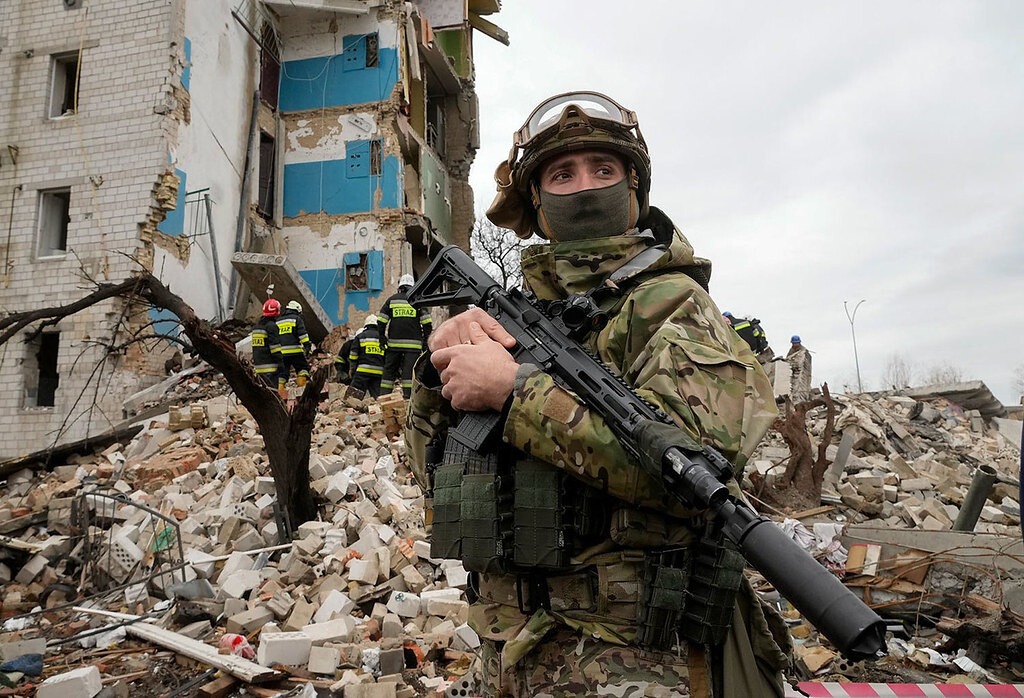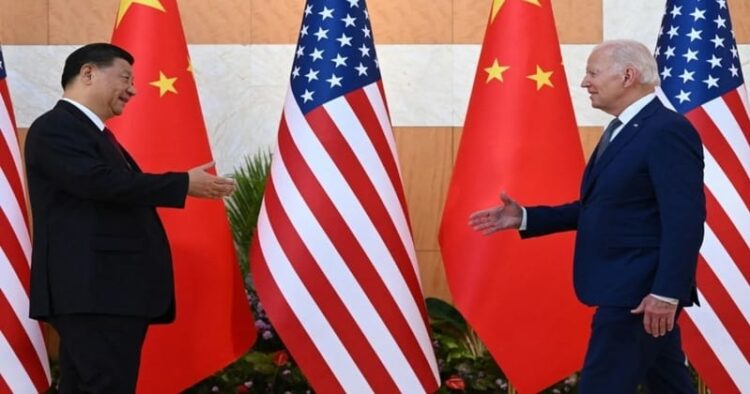It has been largely perceived that China might pretend to be neutral, but Chinese President Xi Jinping has deliberately hitched his chariot to Russia’s warhorses.
The Chinese leader refuses to criticise Russia’s President Vladimir Putin’s invasion of Ukraine and instead accuses the US and NATO of prolonging it. China likes to accuse the US of harbouring a “Cold War mentality”. However, perhaps closer to the truth is that China is not a saint itself.
The conflict has exacerbated fault lines between democracies and autocracies, something China does not necessarily want since it has toughened anti-China stances in many parts of Europe.
The Chinese President spent three days in Moscow from March 20 to visit Vladimir Putin. There the two autocrats professed undying appreciation for each other and reiterated close strategic relations. It was a Chinese show of solidarity for the embattled Vladimir Putin right after the International Criminal Court had issued an arrest warrant for his war crimes.
There are changes happening, the likes of which we haven’t seen for 100 years,” Xi Jinping told Vladimir Putin as they farewelled each other. “Let’s drive those changes together.” The Russian leader responded, “I agree.”
On April 16, Chinese Defence Minister Li Shangfu was in Moscow to meet Vladimir Putin and Russian Defense Minister Sergei Shoigu. Li Shangfu exulted that their relationship “outperforms the military-political unions of the Cold War era. They rest on the principles of nonalignment, and are very stable.”
It is doublespeak to call this “nonalignment”, for China and Russia are closely aligned in their support for each other and their antipathy to the West. On February 4, 2022, Xi Jinping said their relationship had “no limits”, and there were no “forbidden areas of cooperation”.
Xi Jinping has assessed that the benefits of this friendship outweigh the costs. Interestingly, more than half of Vladimir Putin’s team in the first round of talks with Xi Jinping were officials involved in Russia’s weapons and space programs. This suggests one priority was military cooperation. With Russia scraping its equipment barrel, it is keen to utilise China’s vast industrial capacity, and Xi Jinping would doubtlessly like to obtain Russia’s most treasured secrets.
Well, Russia has no choice left but to go with China and become its underling, as claimed by several experts. This has set a tone for the Chinese camp against the West and its henchmen. American political scientists have declared that China and Russia have unequivocally entered into a new phase of the Cold War.
China’s violation of the sovereign airspace of the US and many others via its high-altitude surveillance balloon program made it even more obvious that China is engendering a wintry freeze as this new Cold War emerges.

However, the West-led US has tried to disguise its narcissism as altruism once again. They have also ignited fierce competition between the United States and its allies on the one hand and China and the’ axis of autocratic States’ on the other.
American President Joe Biden has crafted a so-called ‘anti-China containment policy’ together with NATO in Europe, as well as Japan, South Korea and Australia. The Chinese response has been to continue supporting their long-time quasi-ally Russia and to build up a coalition consisting of non-democratic States in Central Asia together with Pakistan, Iran and North Korea so as to prevent the ‘eastern expansion’ of NATO.”
By taking offensive influencing measures against the US and other Western societies, the Chinese Communist Party aims to distract foreign attention from repression within China’s borders and also to pressure the increasingly broad diaspora of dissidents from the Mainland, Hong Kong, Tibet, Xinjiang as well as Taiwanese separatists.
This also clearly shows that they are disinterested in whether the ‘rest of the world’ will participate or not. The Ukraine-Russia conflict has become a stepping stone for this obsession of China and the US to race towards the illusion of bipolarity.
Willy Wo-Lap Lam, Senior Fellow at The Jamestown Foundation in the US, commented: “And given that flashpoints such as Beijing’s possible military action against Taiwan and the commitment of the US and its allies to protect the ‘renegade island’, there is even a possibility of the Cold War turning hot.” Indeed, Taiwan is a unique problem with no parallel to the original Cold War. Would Xi gamble and do what Mao Zedong was never able to achieve, the forcible unification of Taiwan with communist China?
Willy Wo-Lap Lam concluded: “Given such dire scenarios, the possibility is growing that the establishment of mutually acceptable and sustainable ‘guardrails’ for bilateral ties requires a level of perspicacity and flexibility that is beyond the current leaderships of both countries.”
Unfortunately, China will try bending guardrails in its direction until they snap. This has been demonstrated time and again by broken promises such as the militarisation of the South China Sea, encircling the IOR, interfering and nibbling up of sovereign territories, bullying of foreign ships and aircraft in international waters, blatant human rights violations, mass incarceration of Uyghurs, and the usurping of international organisations and norms.
The Chinese Government stated after Nancy Pelosi visited Taiwan in August 2022 that it did not recognise the Taiwan Strait median line. Afterwards, its military aircraft and ships routinely crossed this line that for decades served as a de facto boundary between China and Taiwan. In April, after Taiwanese President Tsai Ing-wen’s stopover in California, China again conducted coercive military drills around Taiwan. China is stripping Taiwan of its defence and space for maneuvering.
Xi Jinping earlier said that “efforts to form cliques and to foment a ‘new Cold War’, ostracism and intimidation…will only push the world toward disintegration and even confrontation.” Yet part of the problem is China’s chameleon-like definitions depending on the audience.
However, the USA is weaving together alliances that help contain China, including AUKUS and the Quad. Yet some warn that American policies will become a self-fulfilling prophecy and that a Thucydides trap (an “inevitable” conflict between a status quo hegemon and a rising challenger) must be avoided at all costs.
The only way the global structure can work today is to hedge itself with both sides and create alternate minilateral arrangements to minimise the impact of the debacles. This is to reduce the total dependency on the two sides led by China and the US and to keep multipolarity intact.




















Comments